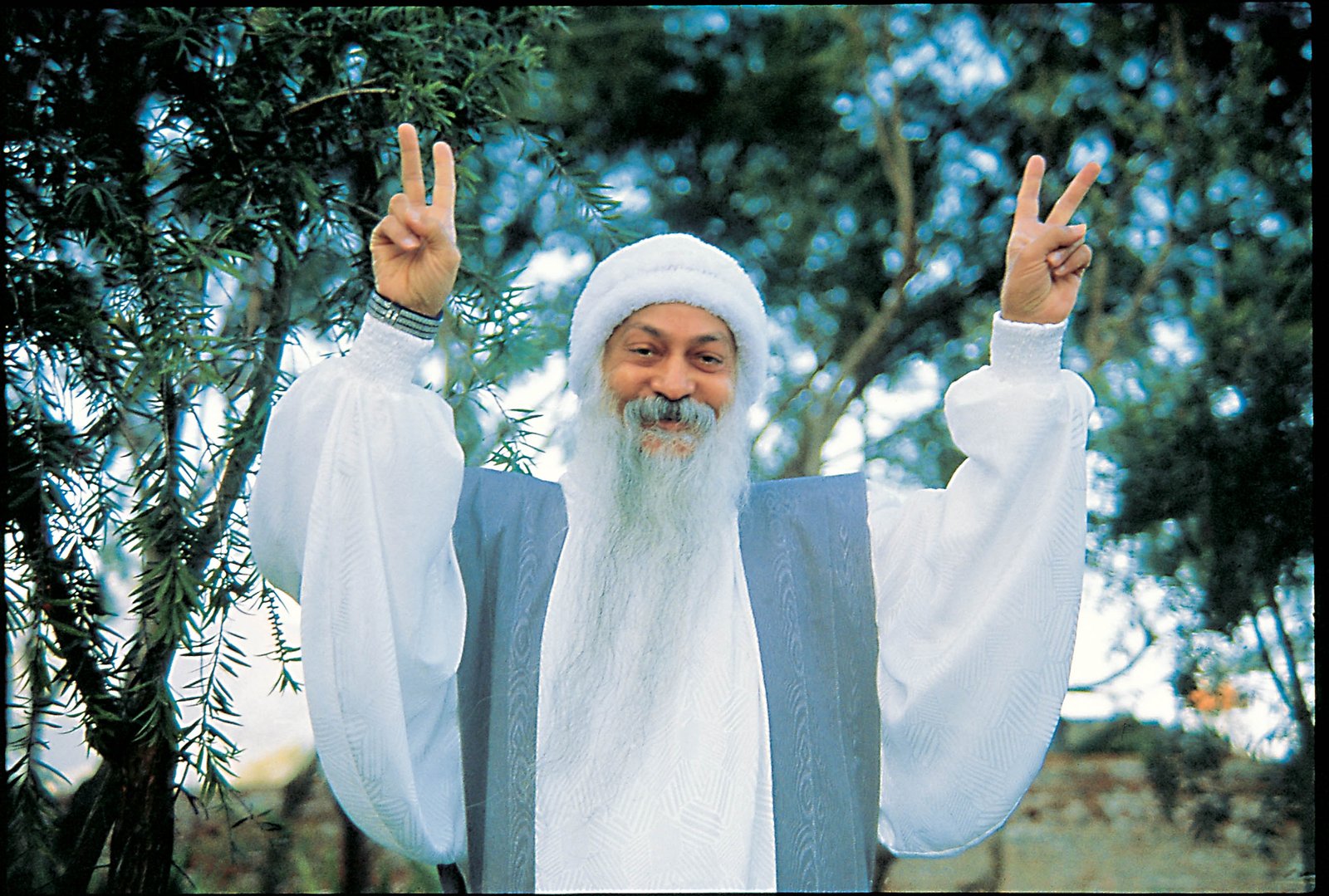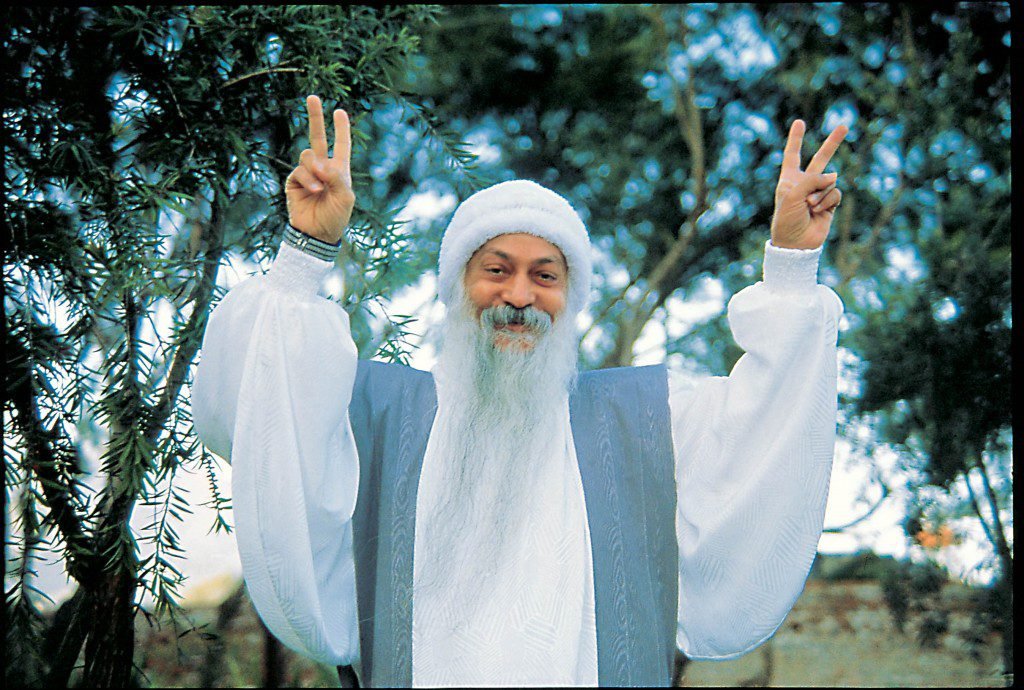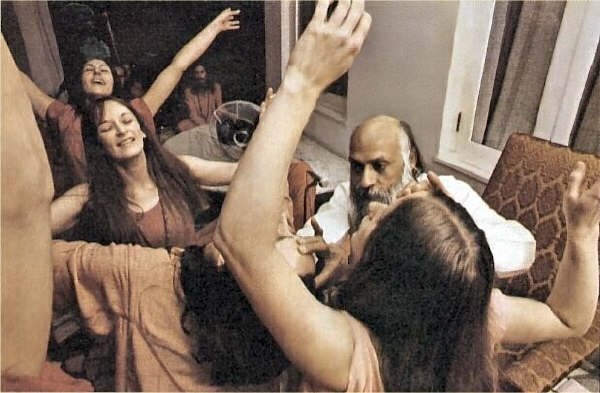PLEASURE IS A FREEDOM-SONG,
BUT IT IS NOT FREEDOM.
Pleasure is only a song, a by-product; when you know freedom, the song will arise in you. But they are not synonymous. The song may remain silent… it depends.
You feel pleasure only when you are living a moment of freedom — freedom from care, freedom from worries, freedom from concerns, freedom from jealousies, freedom from everything. In that moment of absolute freedom a song arises in you, and that song is pleasure. Freedom is the mother, the song is only one of the children; there are many other children to the mother. So they are not synonymous. Freedom brings many flowers — it is only one of those flowers. And freedom brings many treasures — it is only one of those treasures.
IT IS THE BLOSSOMING OF YOUR DESIRES,
BUT IT IS NOT THEIR FRUIT.
Flowers are beautiful. You can enjoy them, appreciate them, but they cannot nourish you, they cannot become your food. You can have them for decoration but they cannot become your blood, your bones, and your marrow. This is what he means…it is the blossoming of your desires, but it is not their fruit.
So don’t stop at pleasure — there is much more ahead. Enjoy the flowers, collect the flowers, make a garland of the flowers, but remember, there are fruits also. And the fruit of your ripening is not pleasure; the fruit is blissfulness.
Pleasure is only a beginning — the tree is ready. The flowers are a song to announce that the tree is pregnant, and soon the fruits will be coming.
Don’t get lost in pleasures, but don’t escape from them either. Enjoy them, but remember — there is much more to life than pleasure.
Life does not end with pleasure, it only begins with it; the fruit is blissfulness. But pleasure gives you some taste of what is going to be ahead. It gives you a dream, a longing for more; it is a promise, “Just wait, fruits will be coming. Don’t close your eyes to the flowers; otherwise you will never find the fruits.”
That’s what I have been telling you again and again, in different ways. My words may be different, but my song is the same. I may enter the temple from different doors, but it is the same temple.
Zorba is only a flower, Buddha is the fruit. Unless you have both, you are not complete, something is missing; there will always remain a gap in your heart, a dark corner in your soul. Unless Buddha and Zorba dance together in your being, the flower and the fruit, the beginning and the end, you will not know the real meaning of existence.
The meaning of existence has not to be searched for by your intellect, it has to be experienced in life.
IT IS A DEPTH CALLING UNTO A HEIGHT….
Pleasure is a depth calling unto a height. Remember always that every depth is always close to a height — only sunlit tops of mountains have deep valleys by their side. Pleasure is in the valleys, but if you have known pleasure, it will create, it will stir in your being, the longing for that faraway sunlit peak. If the darkness is so beautiful, if the valley is so fulfilling, how can you contain your temptation to reach to the heights? When the depths give so much, you have to explore the heights.
Pleasure is a tremendous temptation to reach to the heights. It is not against your spiritual growth; it is a friend, not a foe. And those who have denied it have denied the heights also, because the heights and the valleys exist together. The valleys have their own beauty, there is nothing sinful about them, there is nothing evil about them — just don’t get lost. Enjoy, but remain alert — because there is much more. And you should not be content with the darkness of the valley. The pleasure creates in you a spiritual discontent: if darkness can give so much, can yield so much, what about the heights?
IT IS A DEPTH CALLING UNTO A HEIGHT,
BUT IT IS NOT THE DEEP NOR THE HIGH.
Pleasure itself is more like plain ground. On one side is the high peak of the mountain; because of the height of the mountain it seems to be the depth, but really it is plain ground.
There are depths and there are heights. If you fall into depths, you will be falling into a painful existence, into anguish — below pleasure is pain. Above pleasure is blissfulness, ecstasy.
It is unfortunate that millions of very nice people have renounced pleasure and fallen into the dark, bottomless hole of pain, misery, austerity; but they go on consoling themselves — because their scriptures go on telling them that the more you suffer, the more you will gain after life. Nobody tells them, “There is no need to wait for a paradise after life. Don’t go against pleasure, but follow the pleasure into its totality, and it will start leading you, by and by, upwards towards the heights.”
Here you can be in hell, you can be in heaven; it all depends on you — where you are moving. Don’t move against pleasure; let pleasure be your arrow moving towards the stars.
IT IS THE CAGED TAKING WING….
In pleasure, the caged bird grows wings, but still it is in the cage; now it has wings, but it has not the sky available to it. It can be said, “Pleasure is caged blissfulness.”
Blissfulness is pleasure on the wing, rising higher into the sky. When pleasure becomes free from all prisons, it goes through a transmutation, a transformation. It has the seed in it; somebody just has to remind it, “You are containing tremendous potential.” It has wings, but is not aware of its wings.
To be with a master is not to learn something.
To be with a master is to be infected by something.
Seeing the master on the wing, in the air, suddenly you become aware, “I have also got the same wings.” The master becomes a remembrance. It is not a teaching that a master transfers, it is a remembrance that he invokes.
IT IS THE CAGED TAKING WING,
BUT IT IS NOT SPACE ENCOMPASSED.
So, those who know pleasure have become acquainted with their wings; now they have to find their way out of the cage. And the cage is your own, home-made. It is your jealousy, which you go on feeding; it is your competitiveness, which you go on giving energy to; it is your own ego, which you don’t drop but go on carrying — howsoever heavy the burden is. The cage is not somebody else’s; hence it is very easy to drop it.
OSHO
from : The Messiah vol.2 Ch.3




